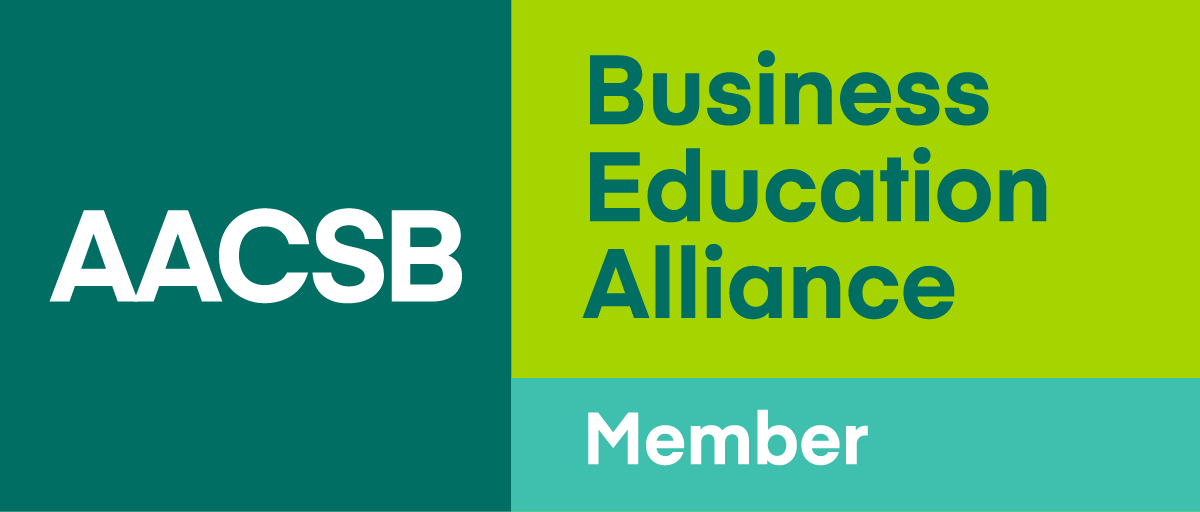“I choose a road less traveled by” – Min-Nan Chen, Associate Professor, National Sun Yat-sen University’s Institute of Human Resource Management: Courageous Choices, Embracing Differences
“I choose a road less traveled by” – Min-Nan Chen, Associate Professor, National Sun Yat-sen University’s Institute of Human Resource Management: Courageous Choices, Embracing Differences
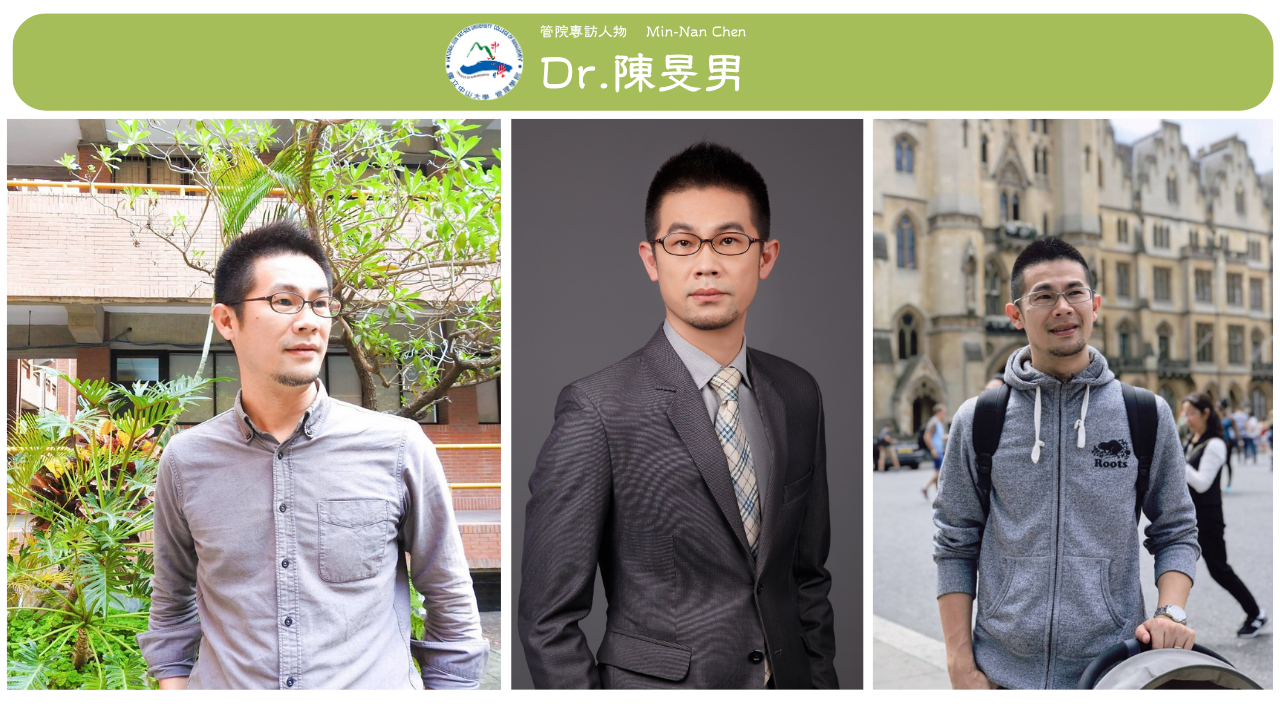
Somewhere ages and ages hence:
Two roads diverged in a wood, and I—
I took the one less traveled by,
And that has made all the difference.
“The Road Not Taken,” a famous poem by 20th-century American poet Robert Frost, depicts the hesitation of a traveler facing a fork in the road, and the conviction and determination of his final choice, which is timeless and endless.
At the same time, this poem also portrays Professor Min-Nam Chen’s life and spiritual redemption.
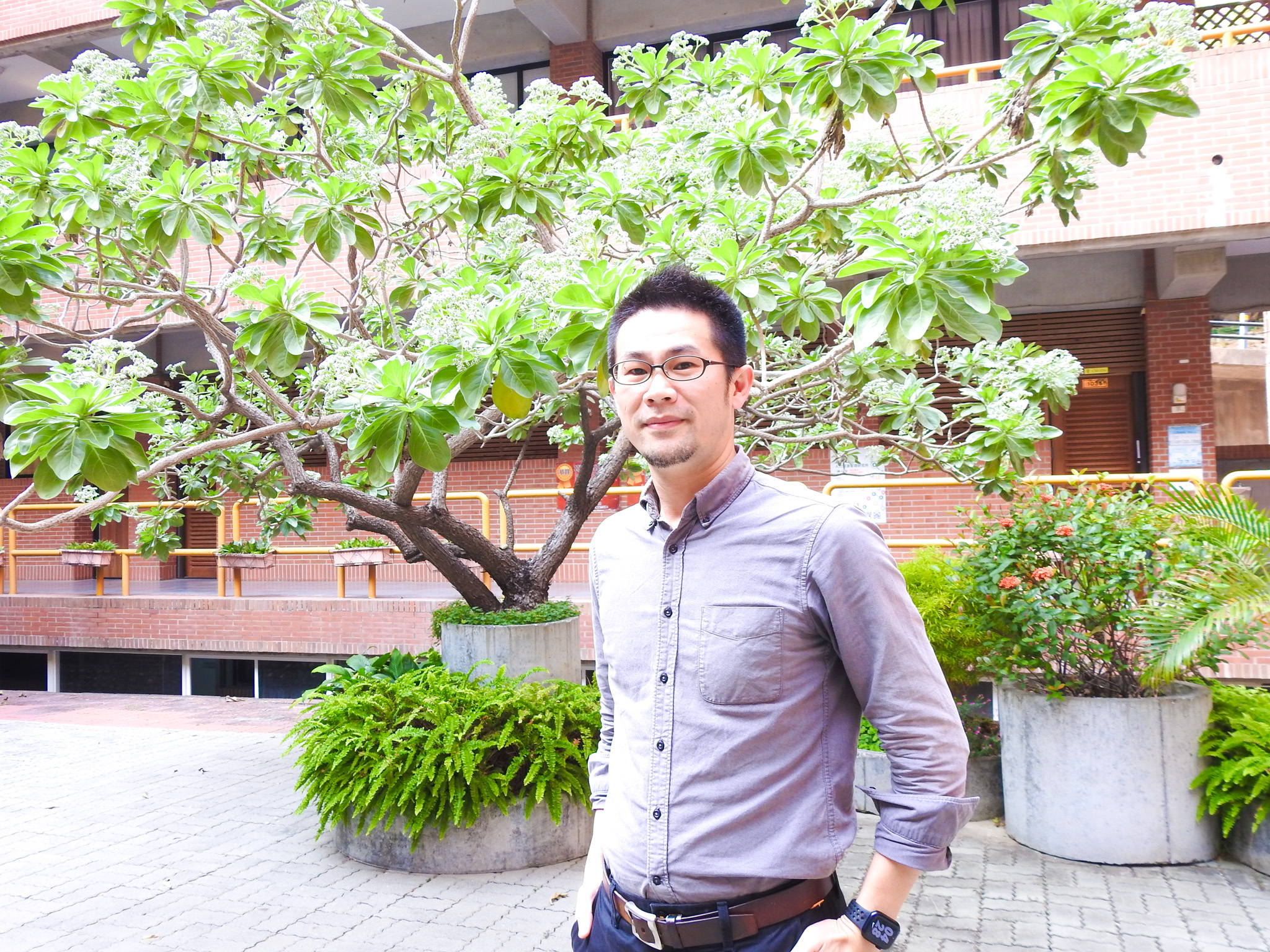
Professor Min-Nan Chen, Associate Professor of the Institute of Human Resource Management, has just come to NSYSU this semester.
“The last two lines of this poem left a strong impression on me.” At first, the poem was required reading for every doctoral student in the Institute of Technology Management at National Tsing Hua University in Professor Shih-Chang Hung’s course Qualitative Research Methods. As a doctoral student at Tsing Hua, Professor Min-Nan Chen admits that at first, he had little understanding of the poem’s content, but it was not until “eight years after entering the academic field that I realized the richness of the poem’s meaning and the power of its interpretation,” he said with emotion. Professor Min-Nan Chen’s comment comes from the fact that he has continued to choose many roads less traveled by in his academic career, and he has experienced many obstacles. After many ups and downs and a series of choices, he has finally reached the dawn.
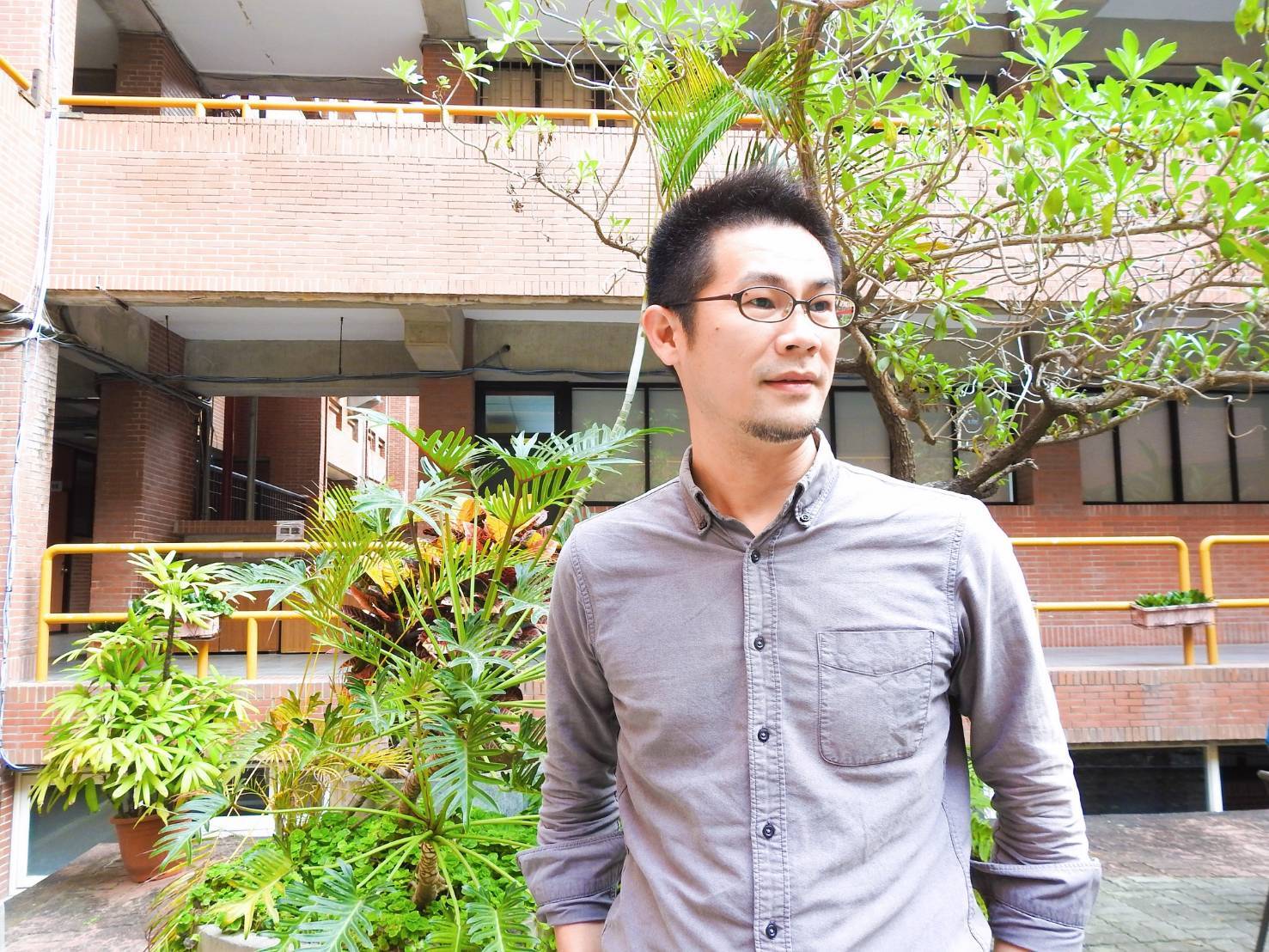
Professor Min-Nan Chen is the recipient of the 2022 National Science and Technology Council Ta-You Wu Memorial Award.
Professor Min-Nan Chen is now an Associate Professor at the Institute of Human Resource Management, NSYSU. Previously, he taught at National Chiayi University for eight years and was awarded the National Science and Technology Council’s 2022 Ta-You Wu Memorial Award. This semester, Professor Chen is teaching the course “Independent Studies in High Technology Human Resource Management” and, together with Professors Cheng-Hsien Li and Yu-Hsuan Wang, “Advanced Research Methods.”
Professor Min-Nan Chen’s undergraduate degree is not in human resource management, but rather in the unrelated field of graphic communications. He received his bachelor’s and master’s degrees from the Department of Graphic Arts and Communications at National Taiwan Normal University. Due to family backgrounds, his peers either taught advertising design or went to work for a television station.
However, after his internship, he chose to pursue a master’s degree, where he realized that he liked to do research, to think, and to investigate. Therefore, decided to pursue a doctoral degree.
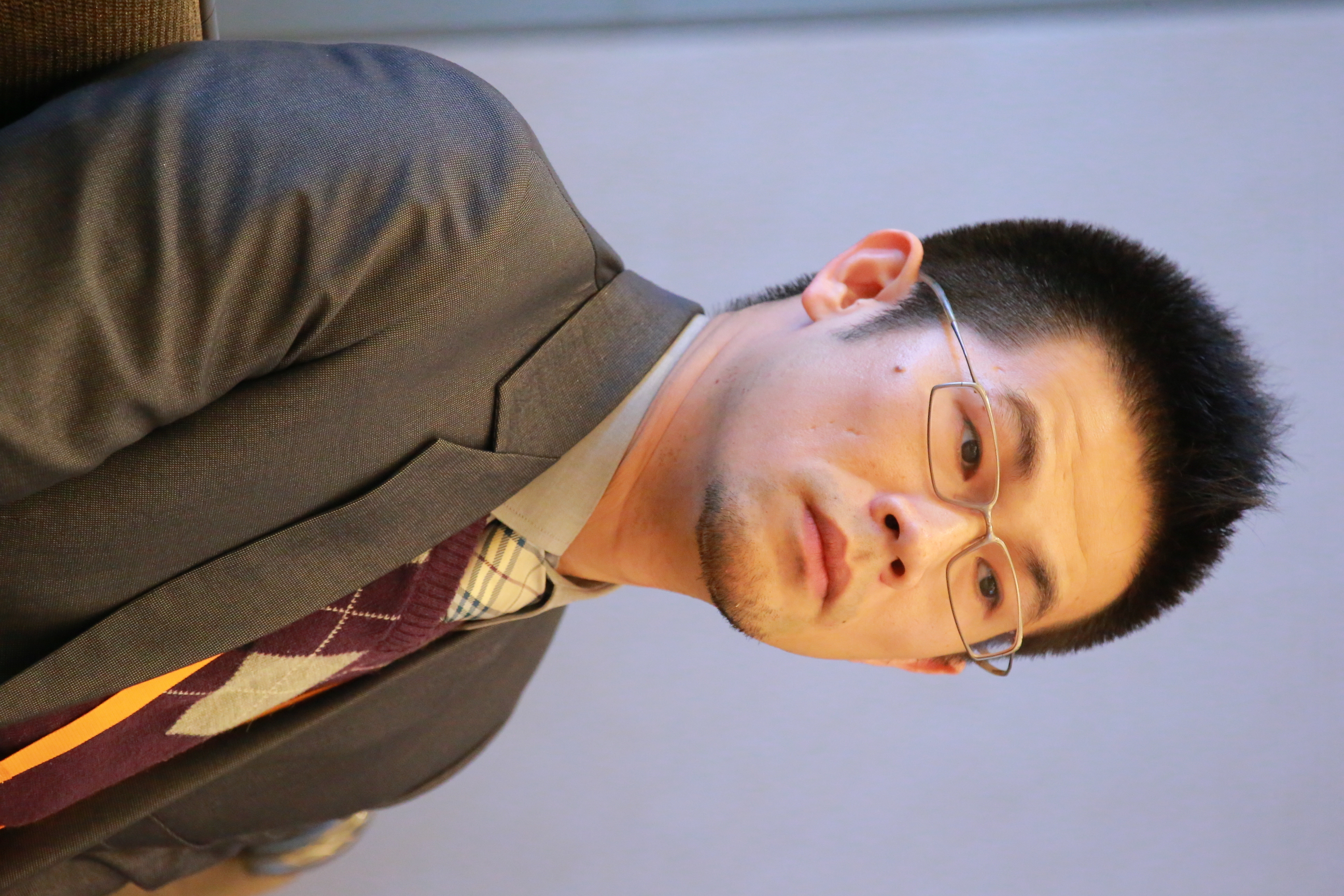
Professor Min-Nan Chen studied Graphic Arts and Communications in his master’s program and Technology Management in his doctoral program.
The first risky path: a not-yet popular master’s thesis topic
His master’s thesis was on business incubation centers, which are now common in industry-academia collaboration. However, around 2005, they were rare in Taiwan. “I was a bit of a rebel at the time. I didn't want to do a traditional graphic communication topic.” Through his research, he worked closely with four design companies at an incubation center, investigating how these companies acquired entrepreneurial resources and managed to survive.
Despite the limited data, he painstakingly managed to complete his master’s thesis. Later, although Professor Chen had decided to pursue a Ph.D. in Technology Management, he still had no clear direction. Fortunately, one of his professors introduced him to an alumni who shared with him the curriculum and development direction of Technology Management. “He gave me a career direction that had a significant impact on me, and I have somehow managed to come this far.”
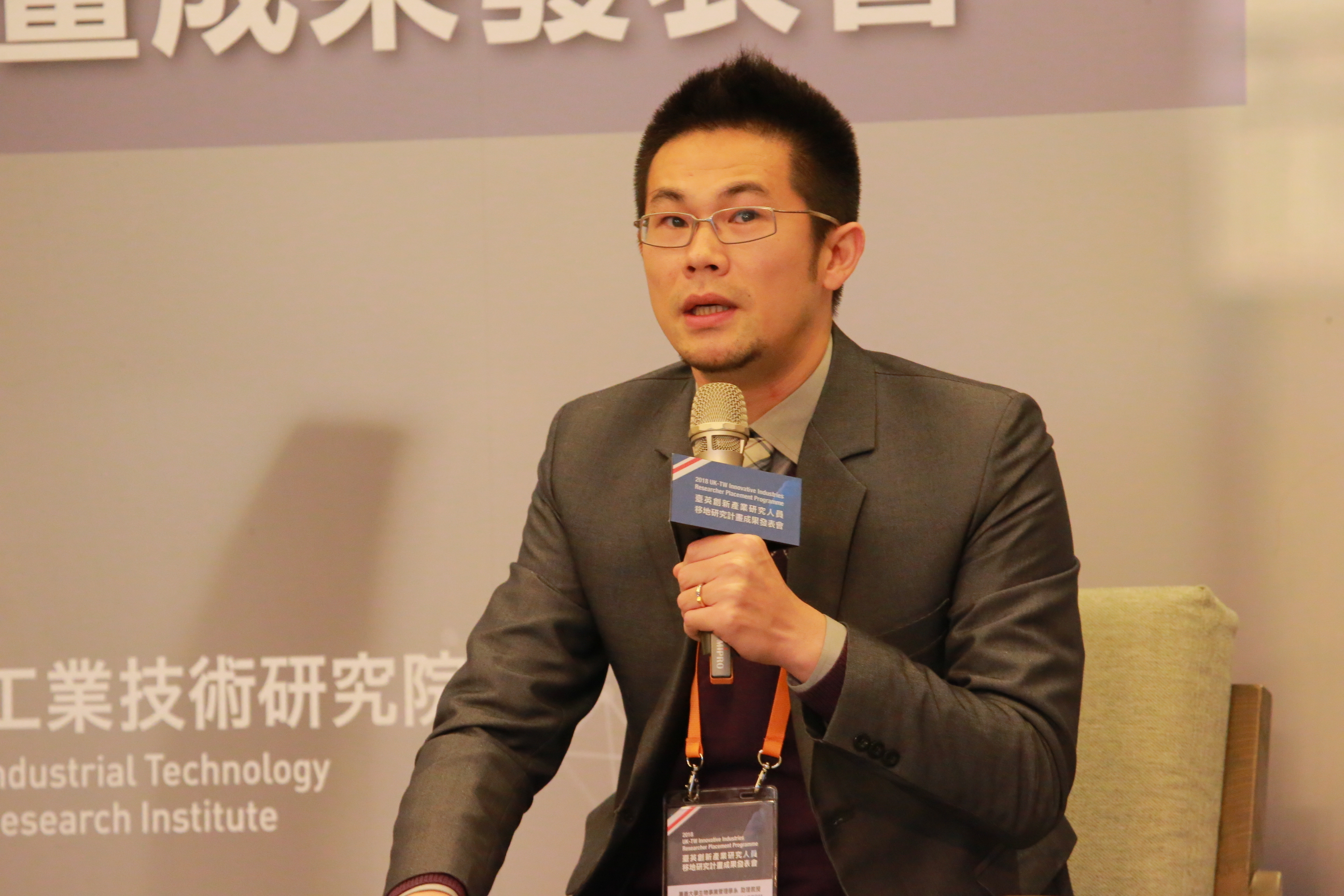
During his academic career, Professor Chen Min-Nan is often invited to give lectures.
The second risky path: a Ph.D. dissertation that requires extensive data collection that is expensive and time-consuming
In 2007, Min-Nan Chen embarked on his journey in the doctoral program at the Institute of Technology Management of National Tsing-Hua University, beginning a series of decisions, including deciding his advisor and his research direction. For his advisor, he chose to Professor Yuan-Chieh Chang, whose research area at the time mainly focused on science and technology policy and R&D management, with a strong emphasis on the practical applications and interpretations of research issues to policy. For his research topic, Min-Nan Chen again chose a topic with a limited literature and discussion: service innovation policy.
“Professor Chang is from the University of Manchester in the UK. The industrial development in Manchester has gone from manufacturing to the service industry. So he said to me, ‘Why don’t you do something about Taiwan and look at how the government can help to promote it? You can provide it to the government as a guide.’ However, service innovation policy was not a mainstream issue in technology policy at the time,” said Professor Min-Nan Chen.
How to survive in a wilderness with few academic resources? Together, the teacher and student made a huge contribution: they collected questionnaires from the top 1,000 companies in Taiwan’s service industry, from finance to engineering, from information to retail, and many others.
How can a student with no contacts or resources reach out to these large companies listed on the stock exchange and ask their supervisors to fill out a student questionnaire that has little benefit to the company?
“Through many, many relationships, through the help of professors, visiting many schools’ EMBA students… and the torment of waiting for replies or being ignored. I think these processes are actually the most difficult.” Looking back on the helplessness and sorrows at that time, Professor Min-Nan Chen said that the massive effort of collecting questionnaires, which cost a lot of money and took half a year, was fortunately rewarded with more than 300 returned questionnaires, with a return rate of 28.2%. This huge amount of data has also become the cornerstone of extended future research.
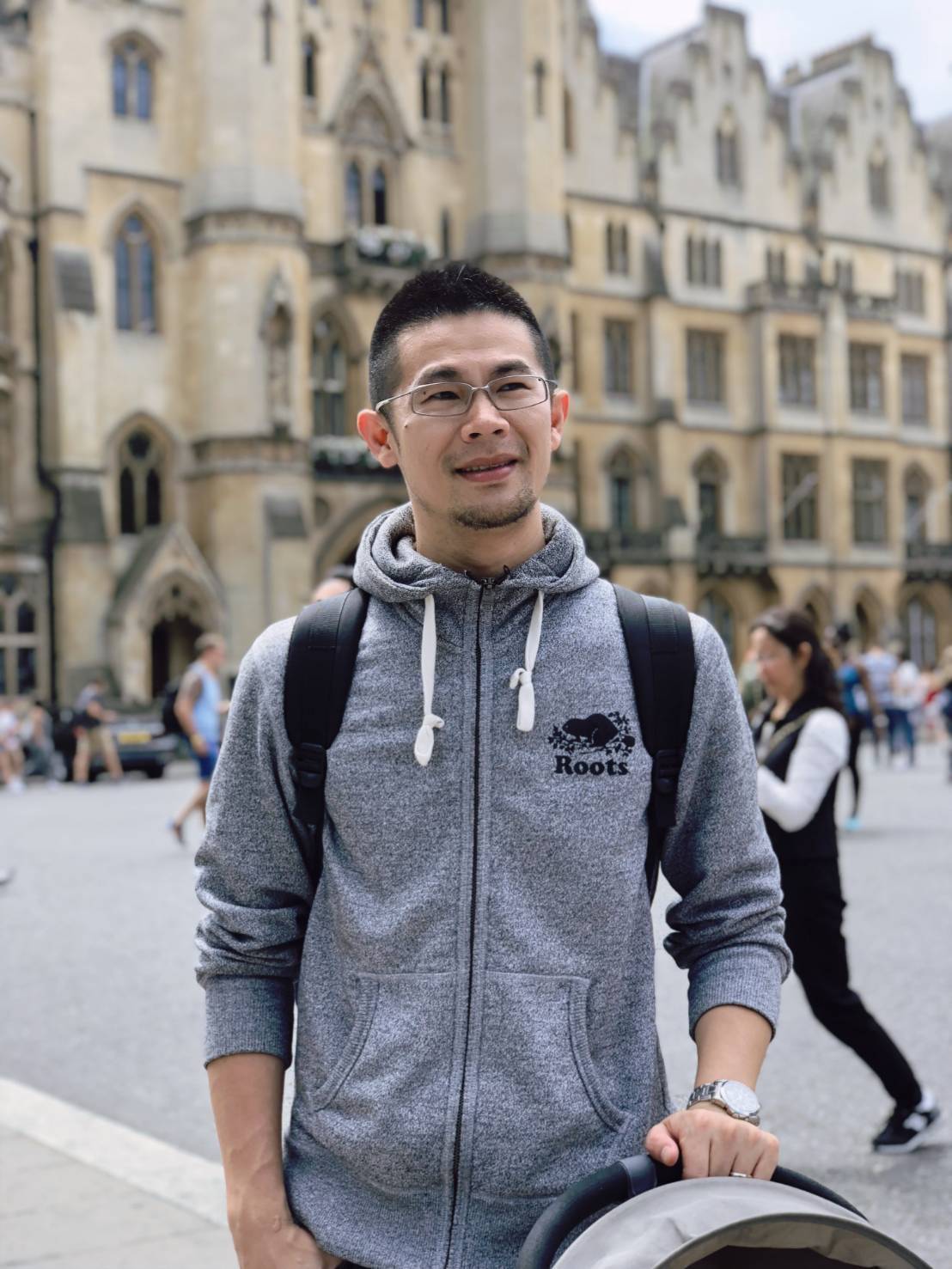
Despite the difficulties, he has contributed a lot to the collection of information about thousands of companies. This picture is a photo from Professor Chen’s trip to the UK.
The third risky path: submitting to all kinds of journals and finally get an A-grade journal
However, despite his painstaking efforts, the topic was not mainstream, so even though he submitted seminar papers and journal articles for publication everywhere, he usually received rejection letters within seconds. Professor Min-Nan sighed and added that some journals even reviewed his research for 2 years, and finally sent a rejection even after he had graduated.
Although the path has been dangerous and full of obstacles, it was not without its benefits. These anonymous reviews gave feedback to the contributors with many suggestions, and Min-Nan Chen made major revisions based on these suggestions.
However, with each journal submission rejection, Min-Nan Chen became more and more unsure of himself. Professor Chang suggested that he send his research to “Research Policy,” considered a first-rate journal by the Humanities Division of the National Science and Technology Council. He wanted to try everything, even if the chances of success were slim. Whether or not it worked out, at least he would have the experience of submitting a paper to a top journal in the field.
After a full year of review, the paper was unexpectedly and successfully published in Research Policy in 2016, emphasizing that the innovation process of service industries has the same cluster characteristics as manufacturing industries, and providing important management and policy implications for service industries. Following this successful publication in 2016, further research results were also published in Research Policy in 2020. This paper further explored the characteristics of innovation in Taiwan’s service industry and proposes complementary-in use appropriability strategies that can effectively overcome the loose appropriability conditions of the service industry and provide solutions for the scaling up and internationalization of the service industry.
In retrospect, in terms of the choice between quality and quantity of research publications, Professor Min-Nan Chen has adjusted his journal submission strategy to target A-grade journals of the National Science and Technology Council with “quality” as the primary consideration. However, this strategy carries a high risk of failure, and submissions and revisions often feel isolating. Submitting to A-list journals can be frustrating most of the time; however, he still expects himself to be optimistic about the criticism and positive about the suggestions.
In addition, he is grateful to Professor Yuan-Chieh Chang for his training and assistance. “It is difficult to express in words my gratitude and respect for his meticulous spirit of research, which has guided me every step of the way and influenced my attitude towards research and scholarship.”
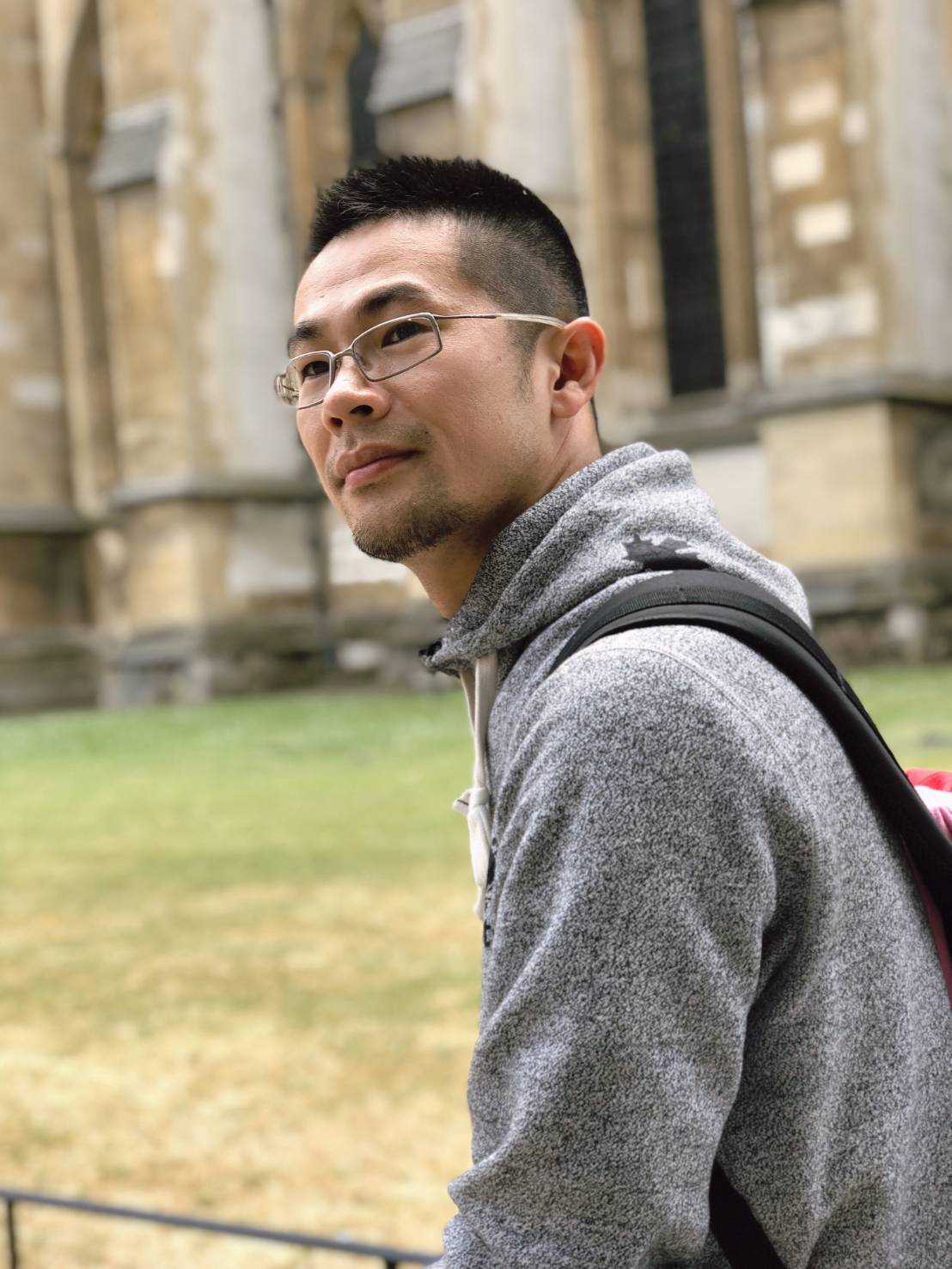
Professor Min-Nan Chen expects himself to be optimistic in accepting criticism and positive in facing suggestions. This picture is a photo from Professor Chen’s trip to the UK.
Chiayi - Taipei, Kaohsiung - Taipei
Going half-way around Taiwan every day for his family
In 2014, Professor Min-Nan Chen joined the Department of Biological Business Management (now renamed the Department of Technology Management) at National Chiayi University as a project assistant professor.
Unbelievably, Professor Chen travels halfway around Taiwan almost every day to return home! Whether at National Chiayi University or later at National Sun Yat-Sen University, Professor Chen’s home is in far-away Taipei. At the beginning of his teaching career, he was under the pressure of his project contract evaluation. He was often commuting between Taipei and Chiayi on the same day, and it was common to include all of Western Taiwan in his daily living area.
In addition, in his second semester of teaching, Professor Chen’s wife returned to the workplace after her maternity leave was over. He also had to balance his responsibilities as a father, dropping off the children at school and picking them up. It was part of his daily routine to take the HSR to pick up his children, and an 8:00 a.m. to 6:00 p.m. class schedule on Monday to Friday was also the norm. At that time, his teaching load was heavy and his research work stagnated. It was quite difficult for him to adapt mentally.
Fortunately, after being guided and advised by Professor Chih-Ping Wei of the Department of Information Management at National Taiwan University, he realized the importance of time management and concentrated on his research. After adapting to his teaching load and making better use of his time, his research gradually got back on track.
He does not waste his commute time on the HSR, sharing how to manage his time: “Every time I get on the HSR, I think about what I want to do in the next 1.5 hours,” he said. “With a goal in mind, I can arrange each time slot in a detailed manner. For example, I need to review an essay, finish a piece of writing, catch up on sleep, etc.” After completing these goals, he can get off the HSR and go back to picking up his kids and enjoying family time.
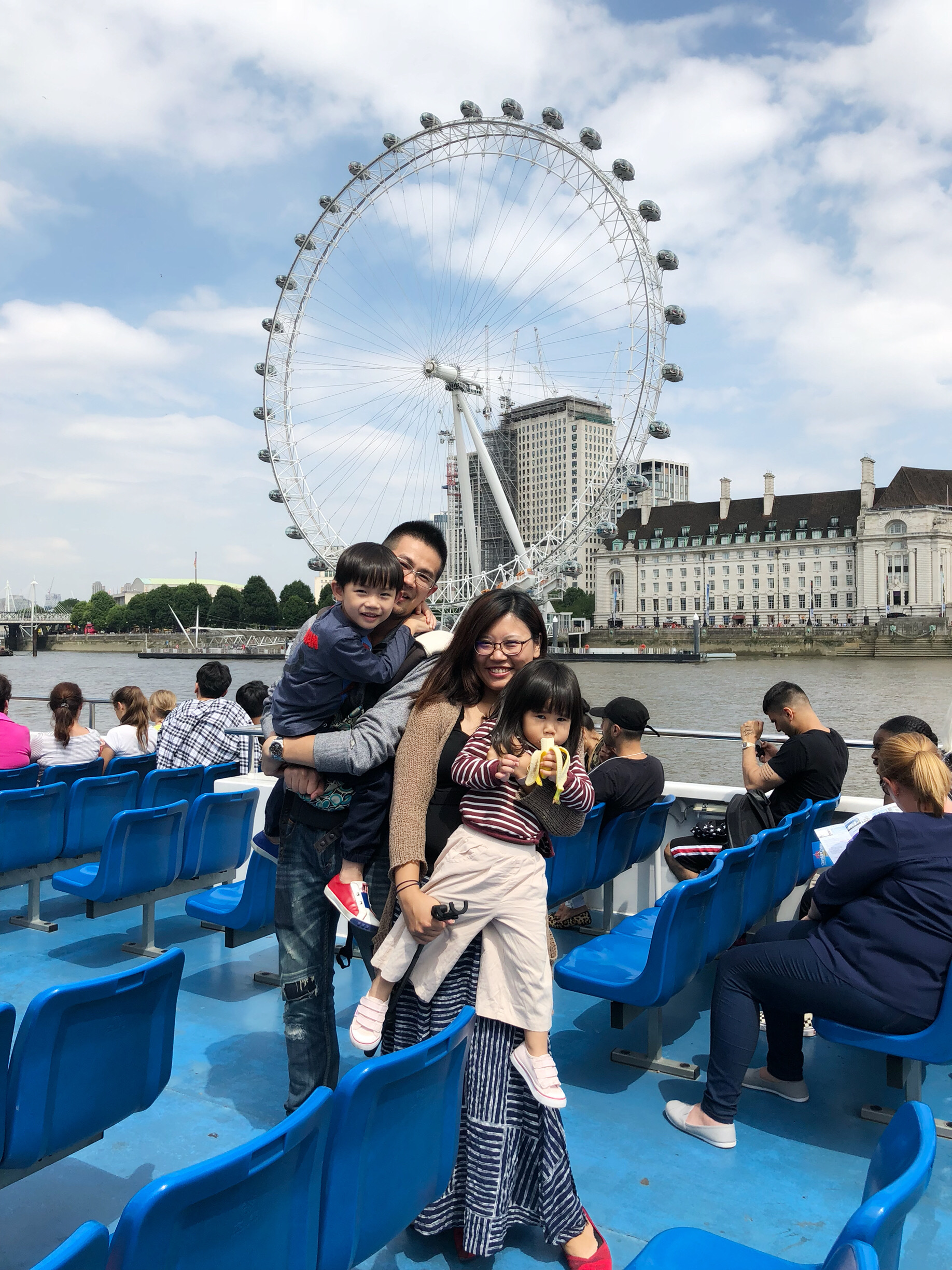

For the sake of his dear family, Professor Min-Nan Chen has been traveling between Chiayi and Taipei and later between Kaohsiung and Taipei every day. These pictures are photos of Professor Chen and his family on a trip to England.
Guiding students’ lives, learning and teaching each other
In addition to research, teaching is also a professorial responsibility at the university. “I am very interactive with students, and in the process of interaction, you can also learn something.” Professor Chen believes that teaching and learning go hand in hand. “I am happy to talk with students about their studies, careers, and even their love lives. I try to find ways to guide them, just like friends talking.”
Professor Min-Nan Chen said he once had a student who wanted to apply for the firefighter exam because her family had big problems and was not financially well-off, but because she couldn’t afford to take extra classes to prepare for the exam, she came to him for help with her career direction. Professor Chen not only helped her raise money for her tuition, but also lent her his research room to study at no cost. In the end, the student studied hard for seven months and successfully passed the firefighter exam, got a stable job, and got married happily.
This student was very grateful to Professor Min-Nan Chen, and she told him, “Teacher, you are my hero.” “I was on the verge of tears when I heard that,” said Professor Min-Nan Chen, who was glad he was able to help the student. “It was also because this student was very earnest. If we all did nothing, she might have gone astray.”
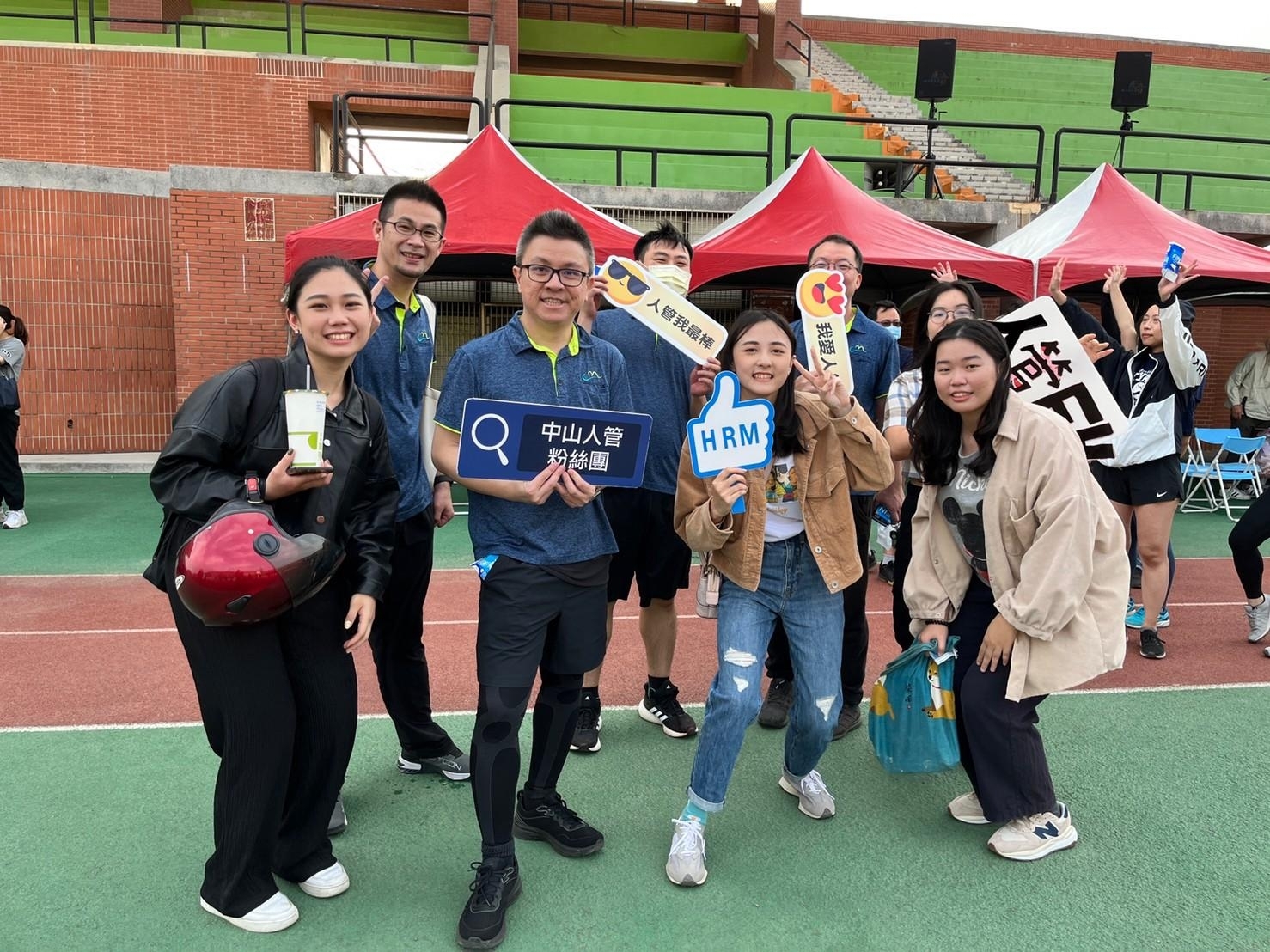
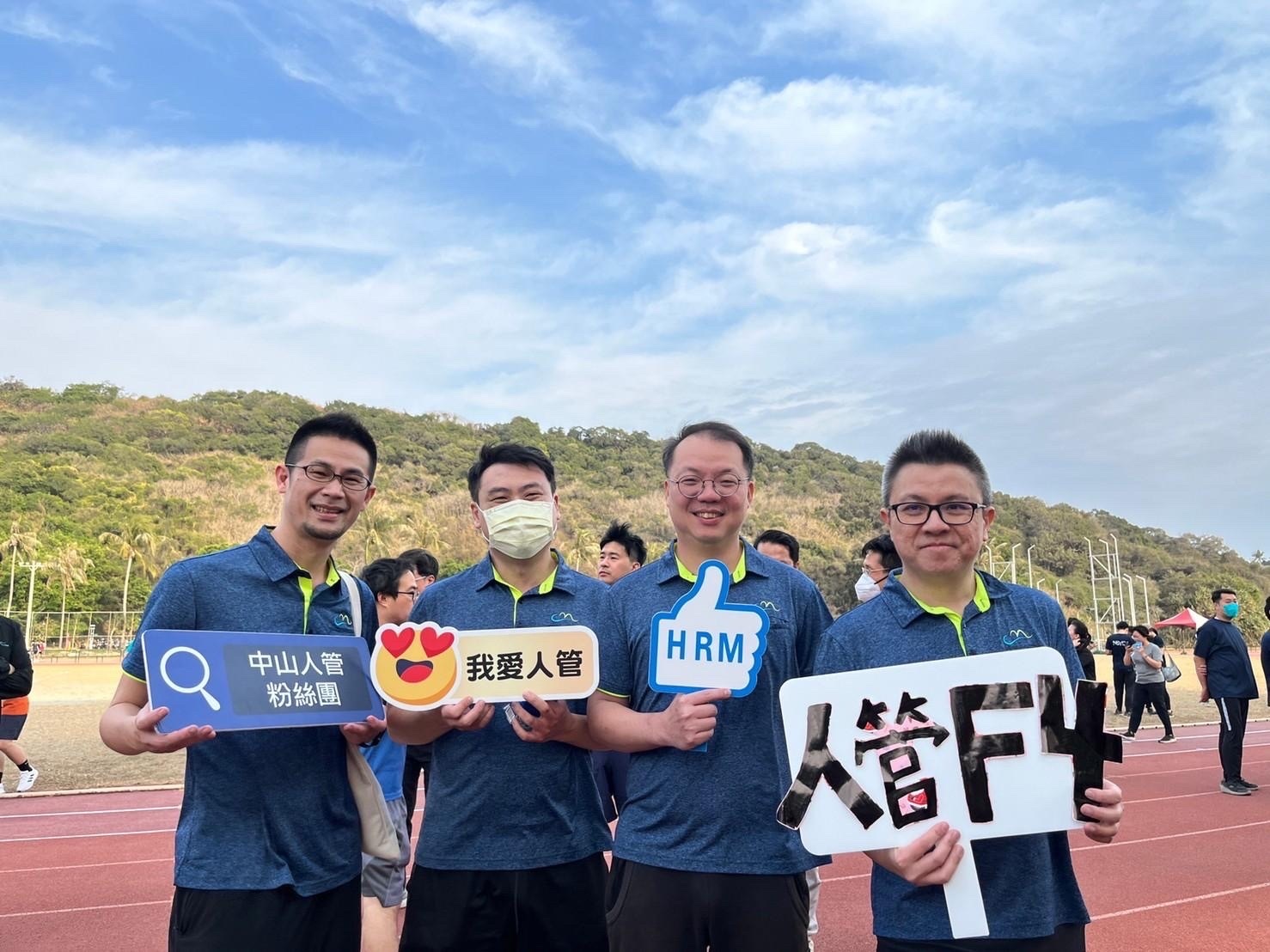
Professor Min-Nan Chen is happy to mingle with students and to humbly learn from faculty members. This picture is a group photo with faculty and students of the Institute of Human Resource Management during this semester’s field day.
Coming to NSYSU Institute of Human Resource Management, he got lots of benefits
When he came to NSYSU’s College of Management, Professor Min-Nan Chen’s research and teaching, as well as his life, became more and more practical. “NSYSU is a very, very beautiful campus.” Professor Chen smiled, adding that one of the reasons was that his wife, an alumnus of NSYSU, highly recommended him to come to NSYSU.
Moving from National Chiayi University to National Sun Yat-sen University, and from technology management to human resources management, was another brand-new challenge. “NSYSU’s Institute of Human Resource Management is a place where I could go back to zero,” Professor Min-Nan Chen said modestly. The benefits he has received from NSYSU’s Institute of Human Resource Management’s director, Nai-Wen Chi, and other faculty members have been great. For example, he recently listened to Director Nai-Wen Chi’s lecture “New tricks for old dogs: How to find new gaps in a mature research field” and was “extremely shocked” by the three strategies for turning old ideas into new ones provided in the lecture.
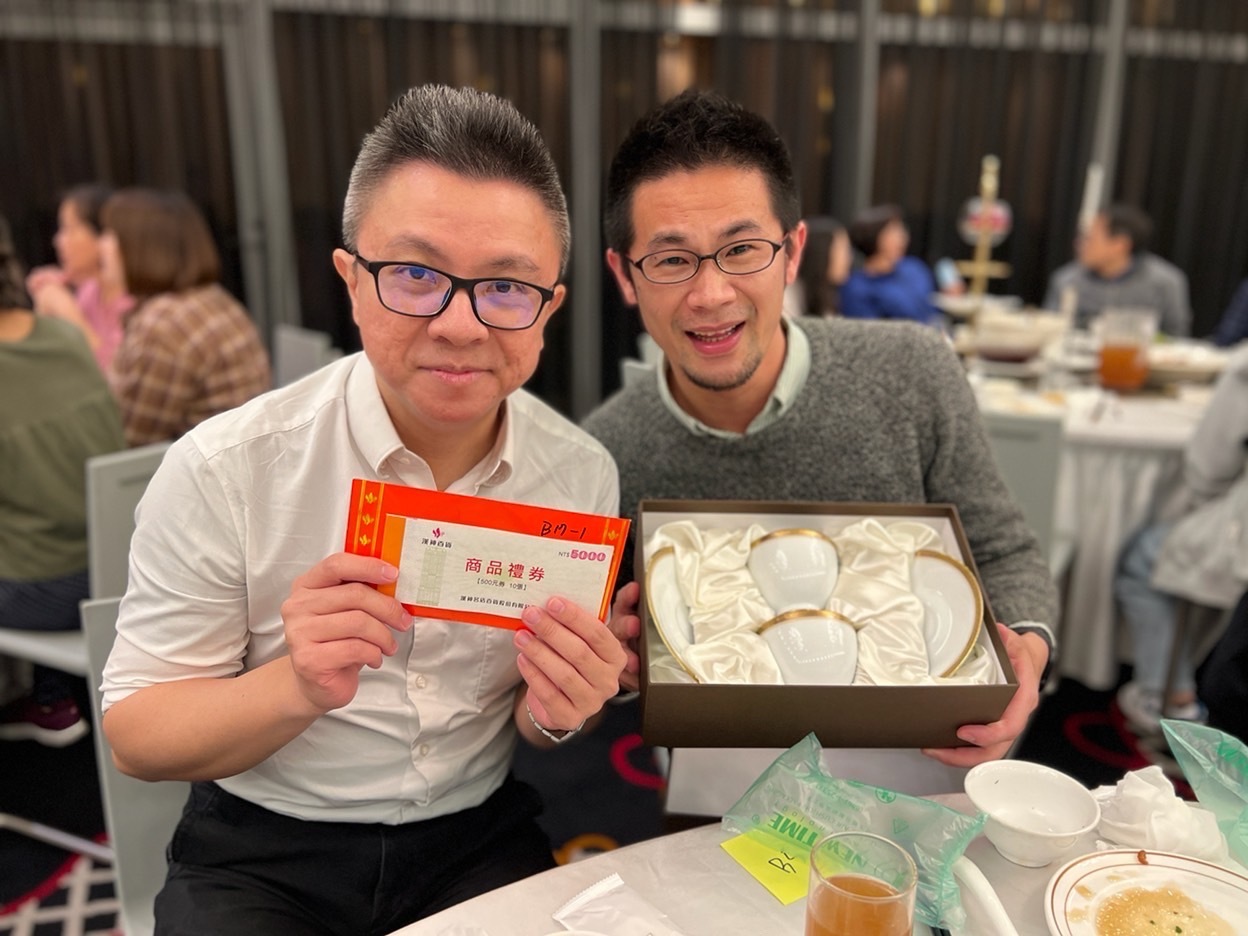
Professor Min-Nan Chen first met Director Nai-Wen Chi of the Institute of Human Resource Management at a results presentation conference. Director Chi invited him to join the Institute.
He is also very grateful to the helpful administrators at National Sun Yat-sen University. “All of my fellow faculty members are too good! Although this was a big shock for me, I think the shock was very beneficial to me.”
Looking back on the eight years of his academic journey, it is like the last two lines of the poet Robert Frost’s unchosen path: “I took the one less traveled by, and that has made all the difference.” Professor Chen says, “I took the road less traveled by, and I don’t know if this road will eventually lead me to victory.” But he believes in being down-to-earth, faithful to his choices, and worthy of heaven and earth.

(Shen Yu, Media, College of Management / Interview Report)


